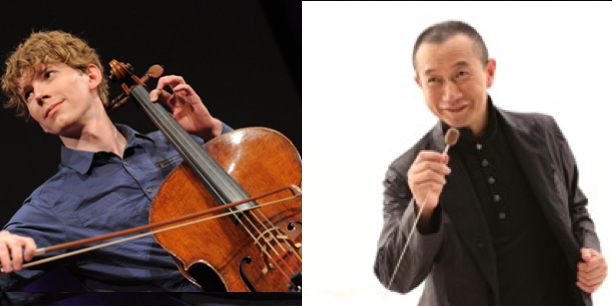The soloists save a mixed night of Chicago Philharmonic premieres

For its first concert of 2023, the Chicago Philharmonic Orchestra (CPO) celebrated the music of Chinese-American composer Tan Dun at the Harris Theater on Saturday night, under the leadership of artistic director and chief conductor Scott Speck.
The concert opened with an ecstatic though unannounced solo from pipa virtuoso and Chicago transplant Wei Yang, establishing the evening’s cross-cultural aesthetic and making a fine overture to the first half’s main event: Tan’s Crouching Tiger Concerto. A cello concerto in all but name, the Crouching Tiger Concerto mines and elaborates material from Tan’s score to Ang Lee’s 2000 film Crouching Tiger, Hidden Dragon, with the result cast for solo cello and an orchestra of strings, flute (alto and piccolo), harp and a battery of percussion.
The CPO was lucky to have cello phenom Joshua Roman as their soloist, as one can hardly imagine a finer protagonist for this genre-spanning score. Roman has spent much of his young career straddling styles and innovating in the spaces between them, and was unphased by the significant demands Tan places on the soloist. From the languid erhu-channeling slides of the opening, to the use of a metallic pick to evoke a pipa sonority on the cello, Roman was a commanding solo presence, clearly enjoying himself as he performed the involved solo part from memory.
Principal flute Mimi Tachouet was a standout in the many solo moments for alto flute and piccolo that evoked traditional Chinese wind instruments. The quintet of percussionists were also a dynamic presence, with principal Peter Ferry at one point making a transit of the stage performing on a taarija drum which he swapped for a tambourine when he reached the conductor’s podium. Speck was an assertive leader as he oversaw the complex score, and the collective effort was received with enthusiastic applause.
The second half was a far more mixed affair. Roman was again in the solo spotlight for the world premiere of Rise, a cello concertino by Reinaldo Moya, the CPO Donna Milanovich Composer in Residence. Moya did not attend the performance, but sent recorded remarks from overseas in a video clip seemingly shot on a handheld iPhone.
Moya explained that Rise was written in response to his brother Manuel’s death last year, which he sought to “memorialize through a lyrical work,” with the solo cello asking the kind of hard questions that accompany grief. Again playing from memory, Roman brought a persistent urgency to his line, always pressing against Moya’s restless orchestral textures. The solo culminated in an unhinged wail high on the fingerboard, a moment where the work’s inspiration was palpably felt. Rise is an affectively engaging if somewhat formless essay, at least on a first hearing, but with advocacy like Roman’s it should have a future well beyond Saturday night.
Before the final work on the program, a series of noisy video advertisements for upcoming CPO programs was played behind the stage. This felt tacky, distracting, and unwelcome, leaving one waiting for an invitation not to forget the concessions in the lobby.
This final work was Tan’s 1996 Concerto for Guitar and Orchestra (Yi2) with soloist Sharon Isbin, for whom it was written. The performance was the work’s North American premiere, but one cannot say the continent has been suffering for want of Yi2 performances the past 26 years.
Tan’s score is noisy and chaotic, but to little effect. It begins with flamenco-inflected strumming from the soloist that is answered with claps from the conductor, a conceit that repeats several times over its half-hour duration, which otherwise has no readily apparent organizing principle. One could detect whiffs of the kind of cultural cross-pollination Tan achieved in the Crouching Tiger Concerto, but without any of the atmosphere he achieved there. Even Tan’s written explanation about a “counterpoint of styles,” and mediating between “that which already exists” and “the potential that is to be discovered” offered little clarity. Perhaps the work makes more sense heard alongside the other Yi concertos he has penned?
Speck was an assured guide through Tan’s jangling, and Isbin was fully in command. One was confident her account of the solo part was authoritative as she dispatched its hairy cadenza with ease. When she took the stage for an encore, she said, “I think you just want to hear a tune,” seeming to acknowledge the unrewarding challenge of Tan’s score. Almost as recompense, she offered the waltz “Natalia” by Venezuelan guitarist-composer Antonio Lauro, a hypnotically flowing ode to composer’s daughter that serenely ended the evening.
The CPO returns 7:30 p.m. Saturday February 4 at the North Shore Center for the Performing Arts in Skokie, with Speck leading Larsen’s Deep Summer Music, Schumann’s Symphony No. 3 and Mahler’s Songs of a Wayfarer with mezzo Susan Platts.chicagophilharmonic.org
Posted in Uncategorized




